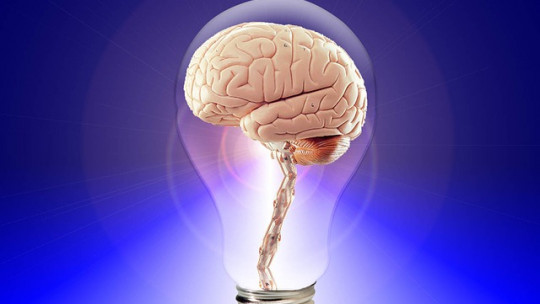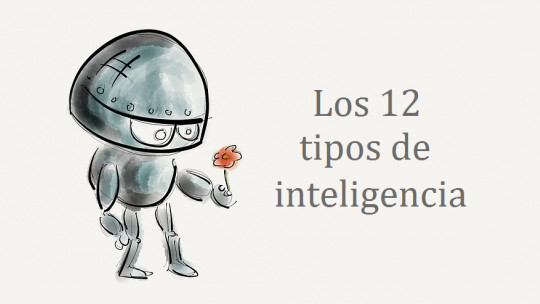
In a time when the debate and discourse about mental health is on everyone’s lips, the concept of Emotional Intelligence runs through our daily conversations, introducing it into the collective imagination of many people. However, not everyone fully understands what emotional intelligence refers to, and the number of factors that it can influence in the daily lives of all people.
Emotional Intelligence refers, in a simplified way, to the ability to perceive, understand and manage our own emotions and those of the people around us. However, Understanding the influence of Emotional Intelligence goes beyond the emotional terrain also delving into self-concept, self-esteem and the quality of the relationships we build with other people, among other things.
In this article, we will focus on understanding the day-to-day problems and situations that Emotional Intelligence can face and manage, thus understanding the importance it has in our daily lives and the relevance of training it to improve our skills related to it.
Understanding emotional intelligence and its components
Emotional Intelligence (EI) is a crucial skill that goes beyond cognitive and technical ability. It is about recognizing, understanding and managing our own emotions, as well as understanding the emotions of others. At its core, EI is made up of several interrelated elements that form a comprehensive set of skills. Below, we will unravel some of these elements in more depth.
1. Self-awareness
The basis of EI lies in self-awareness, the ability to recognize and understand our own emotions. This component involves being connected to our feelings, identifying emotional patterns and understanding how these emotions impact our actions and decisions.
2. Self-regulation
Once we are aware of our emotions, self-regulation becomes a vital next step. It involves effectively managing emotions, controlling impulses, and staying calm in challenging situations. Self-regulation does not mean repressing emotions, but rather managing them constructively.
3. Motivation
EI also influences our intrinsic motivation. People with high EI usually have a clear vision of your goals, strong self-discipline and an ability to maintain focus even in difficult times. This motivation not only refers to personal goals, but also the ability to inspire and motivate others.
4. Empathy
Empathy, another key component, is the ability to understand and share the feelings of others. It involves putting yourself in the shoes of others, perceiving their emotions and responding appropriately. Empathy is essential for building strong relationships and fostering mutual understanding.
5. Social skills
EI culminates in effective social skills. These include effective communication, conflict resolution, negotiation and the ability to work collaboratively. Developing good social skills is essential to building healthy and successful relationships both personally and professionally.
Common problems related to lack of emotional intelligence
The absence or deficiency of Emotional Intelligence can give rise to various problems that affect both personal life and interpersonal relationships. Identifying these problems is the first step to understanding the importance of cultivating EI in our daily lives. Some of the common and everyday problems related to a lack of emotional intelligence are:
1. Interpersonal conflicts
Lack of skills to understand and manage emotions can lead to interpersonal conflicts. The inability to adequately express emotions or understand the emotional signals of others can lead to misunderstandings and tensions in relationships.
2. Communication problems
Effective communication is closely linked to EI. Difficulty expressing emotions clearly or lack of empathy when communicating can lead to misunderstandings, emotional disconnection, and difficulties building strong relationships.
3. Stress and anxiety
Lack of emotional self-regulation can significantly contribute to stress and anxiety. People with low EI may find themselves overwhelmed by negative emotions, having difficulty managing the impact of stressful situations on their emotional well-being.
4. Low motivation and demotivation
Lack of intrinsic motivation can be an indicator of EI deficiency. Those who have not developed a clear understanding of their emotions and goals may experience a lack of direction and motivation in their daily activities.
5. Problems in labor relations
In the workplace, a lack of EI can manifest itself in difficulty working as a team, leading with empathy, or resolving conflicts constructively. These problems can affect the work environment and productivity.
6. Impact on mental health
The relationship between EI and mental health is undeniable. Lack of emotional skills can contribute to problems such as depression, loneliness and low self-esteem, as people can feel disconnected from themselves and others.
Its impact on daily life
Emotional Intelligence (EI) has a significant impact on personal life, shaping the way we face challenges and build relationships. Developing a strong EI can be the key to improving various aspects of our daily lives. Next, we will discuss some of the areas of daily life that can be most affected by emotional intelligence (or lack thereof).
1. Strengthening personal relationships
EI facilitates the construction and maintenance of healthy personal relationships. By understanding and responding appropriately to your own and others’ emotions, empathy and emotional connection are encouraged. This contributes to stronger and more satisfying relationships.
2. Effective communication
The ability to express emotions clearly and understand the emotional signals of others improves communication. Effective communication is essential to avoid misunderstandings, resolve conflicts and build an enriching environment both in the family and in society.
3. Stress and anxiety management
EI provides the tools necessary to manage stress and anxiety more effectively. By developing emotional self-regulation, people can face stressful situations with greater calm and resilience, thus preserving their mental well-being.
4. Improved decision making
Self-awareness and emotional self-regulation positively influence decision making. People with high EI tend to make more informed decisions, considering both the logic and emotional implications of their choices.
5. Development of self-esteem
EI is closely related to self-esteem. Understanding and accepting our emotions contributes to building a positive self-image. This translates into greater confidence and security in various life situations.
6. Promotion of personal motivation
EI also plays a crucial role in intrinsic motivation. People with high EI tend to have clear goals, strong self-discipline, and the ability to stay motivated even in the face of challenges.
How to develop emotional intelligence
Developing your Emotional Intelligence (EI) is a continuous process that involves awareness, practice and the will to improve. In this section, we are going to propose some practical strategies to cultivate and strengthen emotional skills in everyday life.
Remember that each person is different and unique, and therefore, not all these strategies can be equally useful for all people. We advise you to experiment, explore and find out what is best for you.
1. Constant self-assessment
Start by examining your own emotions on a regular basis. Reflect on how you feel in various situations and analyze the emotional responses you experience. Constant self-assessment is essential to building strong self-awareness.
2. Practice of self-regulation
Learn to manage your emotions in a healthy way. Identify situations that trigger intense emotional responses and develop strategies to stay calm. Meditation and conscious breathing are valuable tools for self-regulation.
3. Cultivation of empathy
Putting yourself in the shoes of others is essential to developing empathy. Listen actively, observe non-verbal cues, and strive to understand others’ perspectives. Empathy strengthens relationships and fosters a sense of connection.
4. Improved social skills
Work on your social skills, including effective communication, conflict resolution, and collaboration. Practice assertiveness and clear emotional expression to strengthen your interpersonal relationships.
5. Promotion of personal motivation
Set clear and meaningful goals for yourself. Identify your values and aspirations, and use these as a source of motivation. Connecting to your personal goals drives intrinsic motivation.
6. Continuous learning
EI is a constantly evolving skill. Read books, take courses, or look for online resources to help you better understand emotions and develop your emotional skills. Continuing education is key to emotional growth.
7. Gratitude practice
Cultivate a positive mindset by practicing gratitude. Recognize and appreciate the positive experiences in your life. Gratitude promotes a positive emotional state and strengthens emotional resilience.
In conclusion, Emotional Intelligence emerges as an essential tool to improve quality of life. Addressing problems such as interpersonal conflicts, lack of motivation and stress, its development positively impacts personal relationships and emotional well-being. Cultivating these skills is presented as a promising way to effectively navigate the complexity of emotions in our daily lives.








